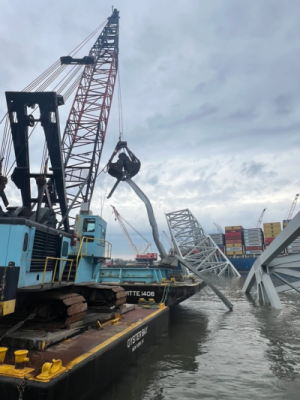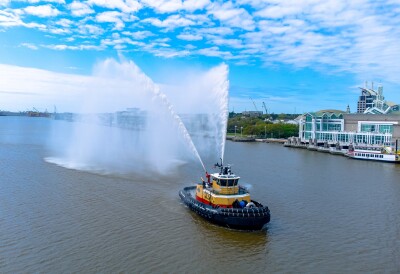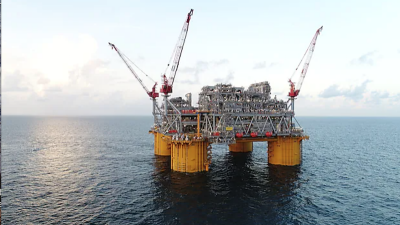While a good swath of the maritime industry – offshore vessels, ports, drill ships and container vessels – are vulnerable to a breach in cybersecurity that could disrupt or damage their operations, the workboat industry can breathe a sigh of relief.
The inland industry operates in an environment that is less vulnerable to the damaging effects of breakdowns caused by cyberattacks on maritime radio frequencies and against the nation’s Global Positioning System, according to Capt. David Moskoff, a master mariner and marine transportation professor at the U.S. Merchant Marine Academy, Kings Point, N.Y.
“Cyber breaches on the inland waterways should not be as damaging as those to vessels offshore that are in danger of grounding or open-ocean collisions,” he said in an email exchange after he spoke to the Women on the Water Conference held March 25-27 at the academy.
“Most workboats in the rivers know to stay between the banks, so will not suffer like a ship with a fully integrated bridge using ECDIS and AIS that become unusable while the radars and other equipment become compromised.” Moskoff used the acronyms to refer to electronic chart display and information systems and automatic identification systems.
Moskoff told the conference that cyber threats can come from natural causes, such as weather and solar storms, can be intentional (signal blocking, jamming, spoofing, terrorism) or unintentional acts (accidents or system failures). Just about all communications on vessels are carried through radio waves, he said, and tampering with radio frequency “is a very easy way to cause a lot of trouble.”
Threats come from near and far. China, Russia, North Korea and Iran, Moskoff said, are actively involved in cyberattacks, as are individuals or groups wanting to do harm to countries or economies.
Two highly vulnerable systems are GPS and Position Navigation and Timing, sometimes known as PNT. A major disruption in GPS, which relies on satellites, Moskoff said, would also shut down AIS and Dynamic Positioning. PNT, which uses GPS signals for its data, is essentially the world’s clock: stock exchanges, banks, energy companies and other major economic players use it to set the time for their transactions and business.
“GPS is easy to jam,” Moskoff explained. Navigation systems in most ships today are highly dependent on GPS for a range of functions, including speed and latitude. Jammers, which are accessible on the internet and easily operated by battery or plugged into cigarette lighters, have the power to shut down ports and offshore areas, as well as cellphone reception and satellite traffic. “The closure of a major world port could cost $1 billion a day, and have a $5.8 billion multiplier in indirect costs,” he said.
Computer systems on vessels can also be harmed by viruses, worms and malware launched by hackers. Hackers recently succeeded in shutting down a floating oil rig by tilting it, and another rig had so much malware in its computer that it took 19 days to get it seaworthy again.
Moskoff said that trends in the shipping industry – for example, reducing crew size and introducing larger ships with highly sophisticated equipment – make shipping vulnerable. This is especially true with the newer, integrated bridges that include AIS, radar, electronic chart display and steering.
“The watch officer has a big load,” he said. “There are so many more distractions now than ever before.
“And we’re losing skill sets and instincts, as mariners have become more dependent on technology.”
Moskoff helped Rep. John Garamendi, D-Ca., draft a bill that was introduced last week in Congress to create a reliable, land-based positioning and navigation system to back up GPS. It would use Loran, the government’s decommissioned, ground-based long-range navigation system infrastructure.
The key “is not putting all your eggs in one basket” and not relying entirely on GPS. “This will come back to bite us if we don’t stay ahead of it,” Moskoff said.




